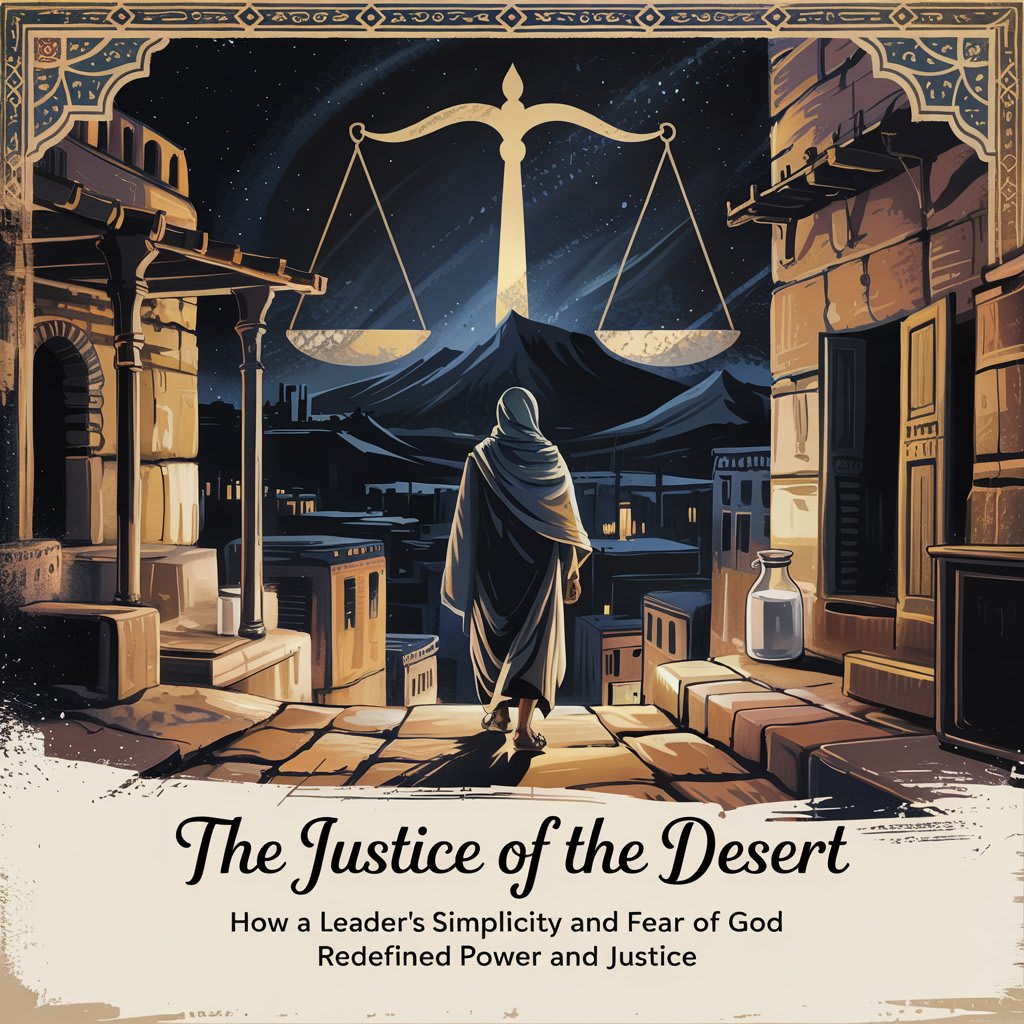Hazrat Umar ibn Al-Khattab (RA): The Just Caliph
Hazrat Umar ibn Al-Khattab (RA), famously known as Umar Farooq, was one of the closest companions of the Prophet Muhammad (PBUH) and the second caliph of Islam. A man of strong character, deep faith, and extraordinary leadership, his rule remains a golden era in Islamic history. His legacy of justice, simplicity, and accountability continues to inspire Muslims around the world.
Early Life and Journey to Islam
Born in 584 CE in the noble Adi clan of the Quraish tribe in Makkah, Hazrat Umar was known for his intelligence, strength, and eloquence. Initially, he was a fierce opponent of Islam and a staunch protector of the Quraishi traditions. However, everything changed when he set out one day with the intent to kill the Prophet (PBUH).
On his way, he discovered that his own sister and brother-in-law had accepted Islam. Shocked and angered, he entered their home only to be deeply moved by the verses of Surah Taha from the Qur’an. That moment transformed him forever, and he embraced Islam. His conversion was a turning point for the Muslim community, as it brought newfound strength, confidence, and public visibility to the faith.
A Pillar of Strength in Early Islam
Once he accepted Islam, Hazrat Umar’s unwavering commitment made a significant difference. Muslims, who had previously practiced their faith in secrecy, began to pray openly, even at the Kaaba, under his protection. His presence alone instilled fear in the hearts of Islam’s enemies and gave confidence to the believers.
He stood firmly by Prophet Muhammad (PBUH) through all major battles, including Badr, Uhud, and Khandaq. His wisdom and insight were often recognized by the Prophet himself. On many occasions, revelations from the Qur’an coincided with Umar’s views — such as his suggestions on the treatment of prisoners of war and the veiling of women.
The Second Caliph and His Unmatched Reforms
After the passing of Hazrat Abu Bakr (RA) in 634 CE, Hazrat Umar became the second Rightly Guided Caliph. His ten-year reign marked a period of vast expansion and administrative brilliance. Under his leadership, the Islamic empire spread far and wide — reaching parts of Persia, Byzantium, Syria, Egypt, Iraq, and Iran.
But his success was not just military — Hazrat Umar was a pioneer in governance and administration. His major achievements include:
-
Introduction of the Hijri calendar
-
Construction of roads, canals, and rest houses
-
Formation of a police department
-
Organization of the army and military salaries
-
Establishment of Bayt al-Mal (Public Treasury)
-
Appointing judges and forming a court system
-
Providing stipends to widows, orphans, and the poor
He ruled with absolute simplicity and fairness. Often disguised at night, he would walk the streets of Madinah to ensure the well-being of his people. His famous words, “Even if a dog dies hungry on the banks of the Euphrates, Umar will be held accountable,” reflect his deep sense of justice and personal responsibility.
Martyrdom and Everlasting Legacy
In 644 CE, Hazrat Umar was tragically assassinated by a Persian slave while leading the Fajr prayer in the mosque. Even in his final moments, his concern for the Muslim Ummah was evident. He formed a council to select his successor, and Hazrat Uthman ibn Affan (RA) was later chosen as the next caliph.
Hazrat Umar's (RA) legacy lives on as a timeless symbol of leadership, justice, and humility. He once advised, “Take account of yourselves before you are taken to account,” emphasizing personal accountability and fear of Allah.
Conclusion
Hazrat Umar ibn Al-Khattab (RA) was not only a great caliph but also a shining example of Islamic character and governance. His leadership style, based on consultation (shura), justice, and selflessness, remains a model for rulers and believers across generations. Through his exemplary life, he has left behind a rich legacy that continues to guide and inspire the Muslim world.





0 Comments